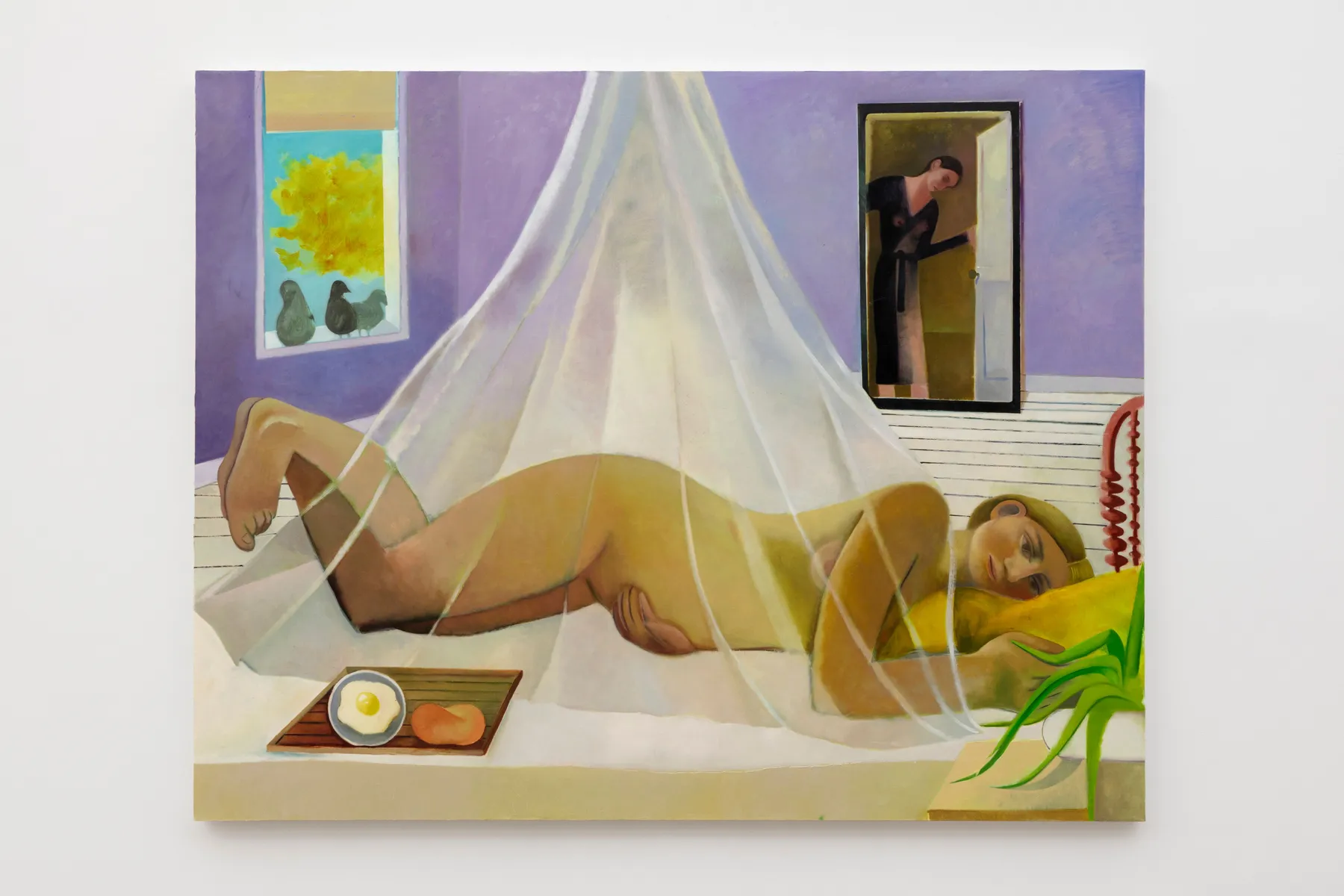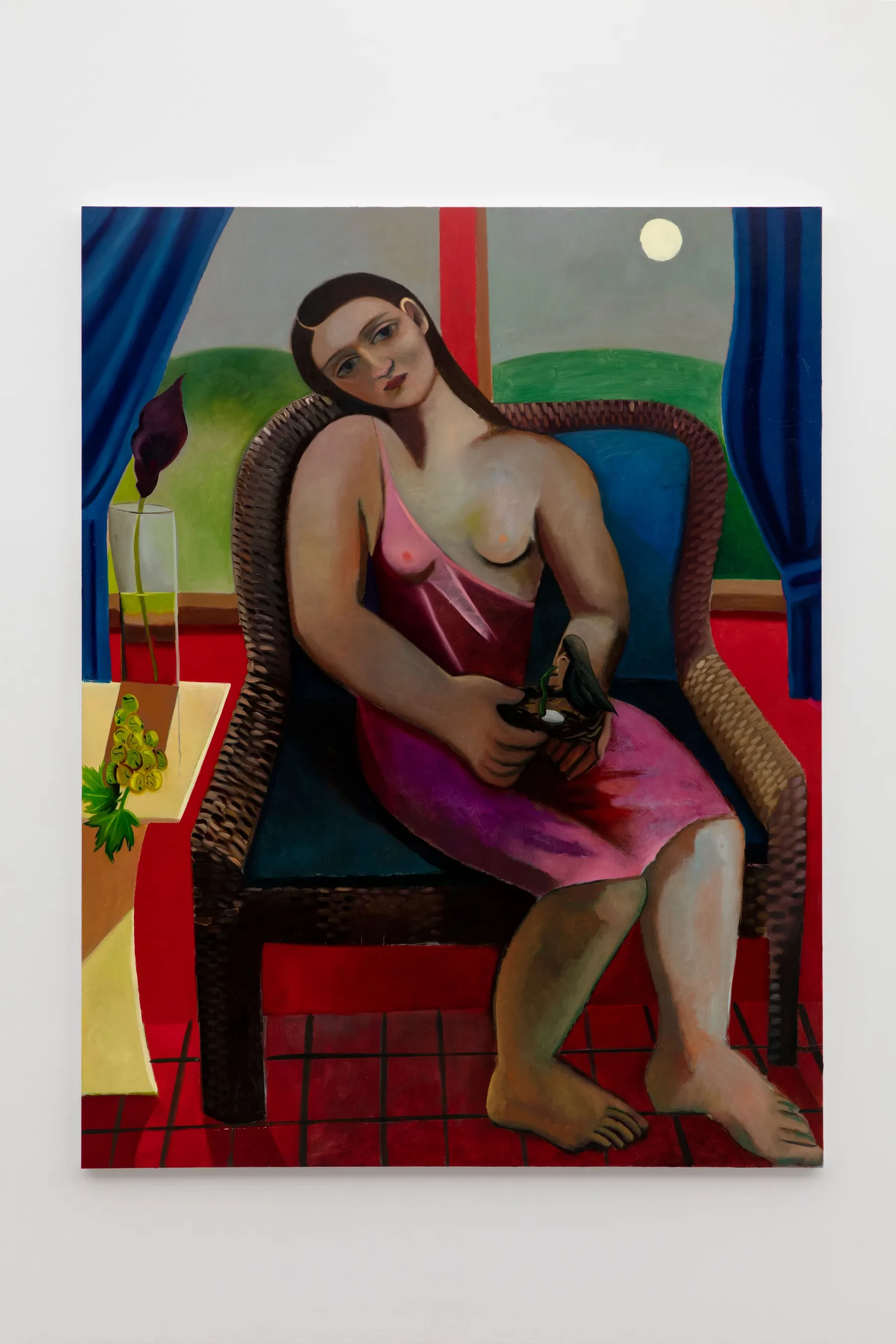After a Lost Pregnancy, Artist Danielle Orchard Gives Shape to the Void
By Grace Edquist for Vogue
(please see source for images and original editorial design)
Danielle Orchard has built up a body of work capturing the daily lives of women—smoking a cigarette, adjusting a bra, bathing, having a drink. Life has many such small moments. But, every so often, something big comes along, infusing what was once mundane with deeper meaning.
Such a tectonic shift happened last year for Orchard when she decided she wanted to have a child. In the Brooklyn-based artist’s new show at Perrotin gallery in New York, 10 poignant paintings touch on pregnancy—its promise, its weight, and, sometimes, its loss, as happened to Orchard when hers ended in a miscarriage. “You Are a Serpent Who’ll Return to the Ocean” presents vignettes imbued with hope, humor, and grief: Orchard’s most personal collection yet.
“I’m a pretty private person,” Orchard, 37, told me earlier this week ahead of the show’s opening. She had been on the fence about making her pregnancy and miscarriage, an often hidden topic, the focal point of an exhibition. But as she talked to other women who had gone through similar experiences, and sat with her own emotions, it became inevitable. “I just couldn’t see any way around it,” she says.
It all started last summer when Orchard was in Cap Ferret, on France’s Atlantic coast. A drawing she made there turned into Pêches Plates, a luminous if uncanny painting with an upside-down figure—nude and Cubist, as Orchard’s women tend to be—reclining on a daybed, her head resting on an open book. A bowl of bananas and the titular peaches, a lamp, and an unhooked rotary phone sit on the nightstand, while an impossibly perched martini glass (dirty gin, I’m told) looks on from an armchair. With all these jolly objects and vibrant colors, it’s almost easy to miss the defining feature of the work: her shadow belly, a figment of future desire, or present loss.
A similar body, inverted and shadow-bellied, shows up in A Fallow Field. These women may look at rest, but they are suspended in unease. There’s something eerie, even sinister going on. “That kind of incongruity is something I’m really interested in,” Orchard says.
A third distended stomach, this time corporeal, appears in Our Sympathies (After Wyeth). Struck by the ethereal beauty of Andrew Wyeth’s 1980 painting Day Dream, Orchard made her own version, with a similar veil-like canopy draped over its protagonist and red spindles on the headboard. Originally conceived as a depiction of a pregnant woman resting, the picture took on a recuperative note after Orchard’s miscarriage. But it’s not all gloom: A physics-defying egg and another peach add some levity to the foreground.
Orchard’s art-historical references are aplenty. Similar to her homage to Wyeth is Le Cauchemar, the nightmare to Picasso’s famous dreaming lady in Le Rêve. Here the figure’s eyes are open, her gaze dispirited. She has the same head tilt, with one breast exposed. But instead of erotic, the mood is melancholic, the figure holding a bird’s nest infiltrated by a baby snake. There’s a winking Orchardism here too: Look closely at the left side of the painting and you’ll see tiny little sperm swimming in the green grapes, a scene from a dream Orchard once had.



